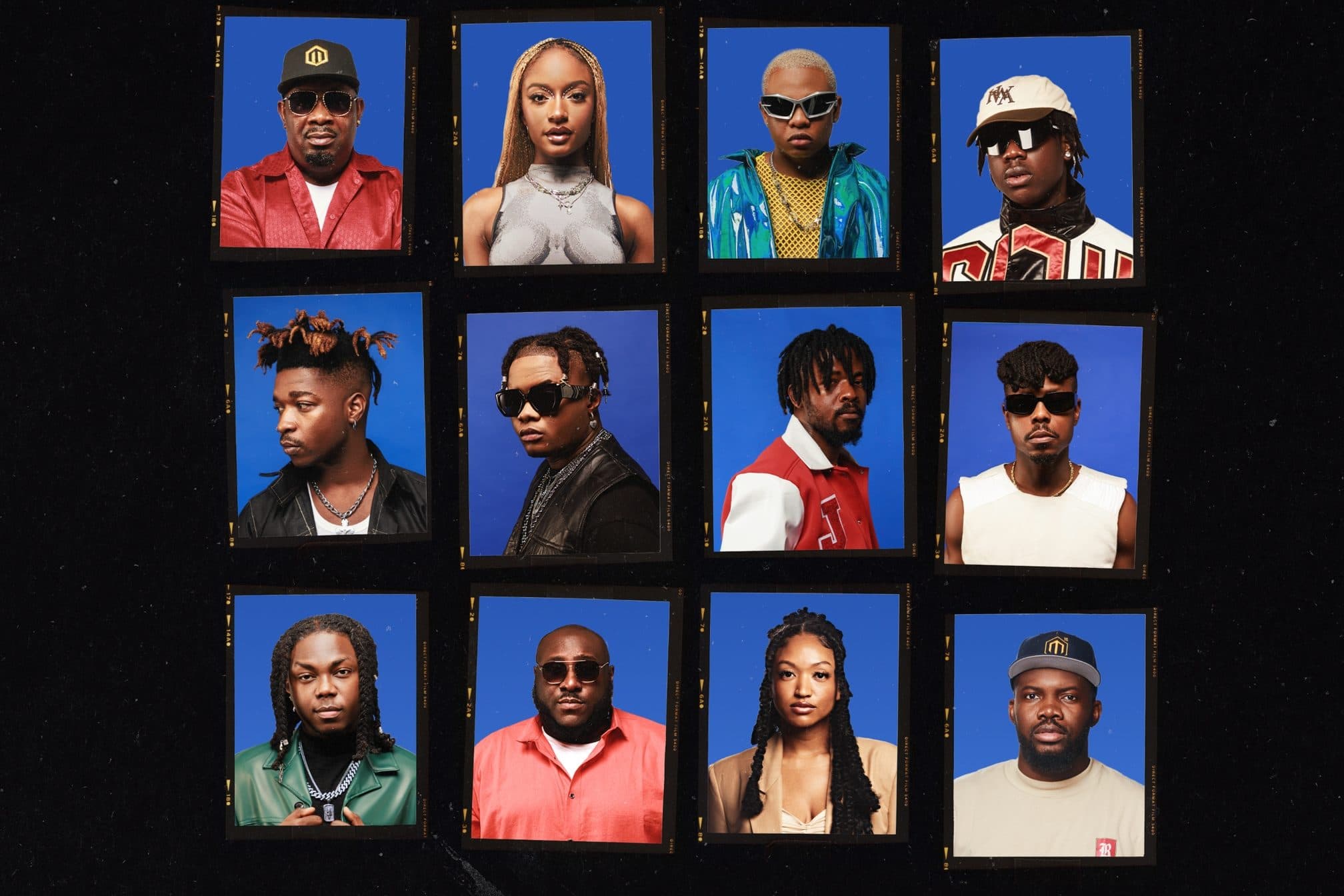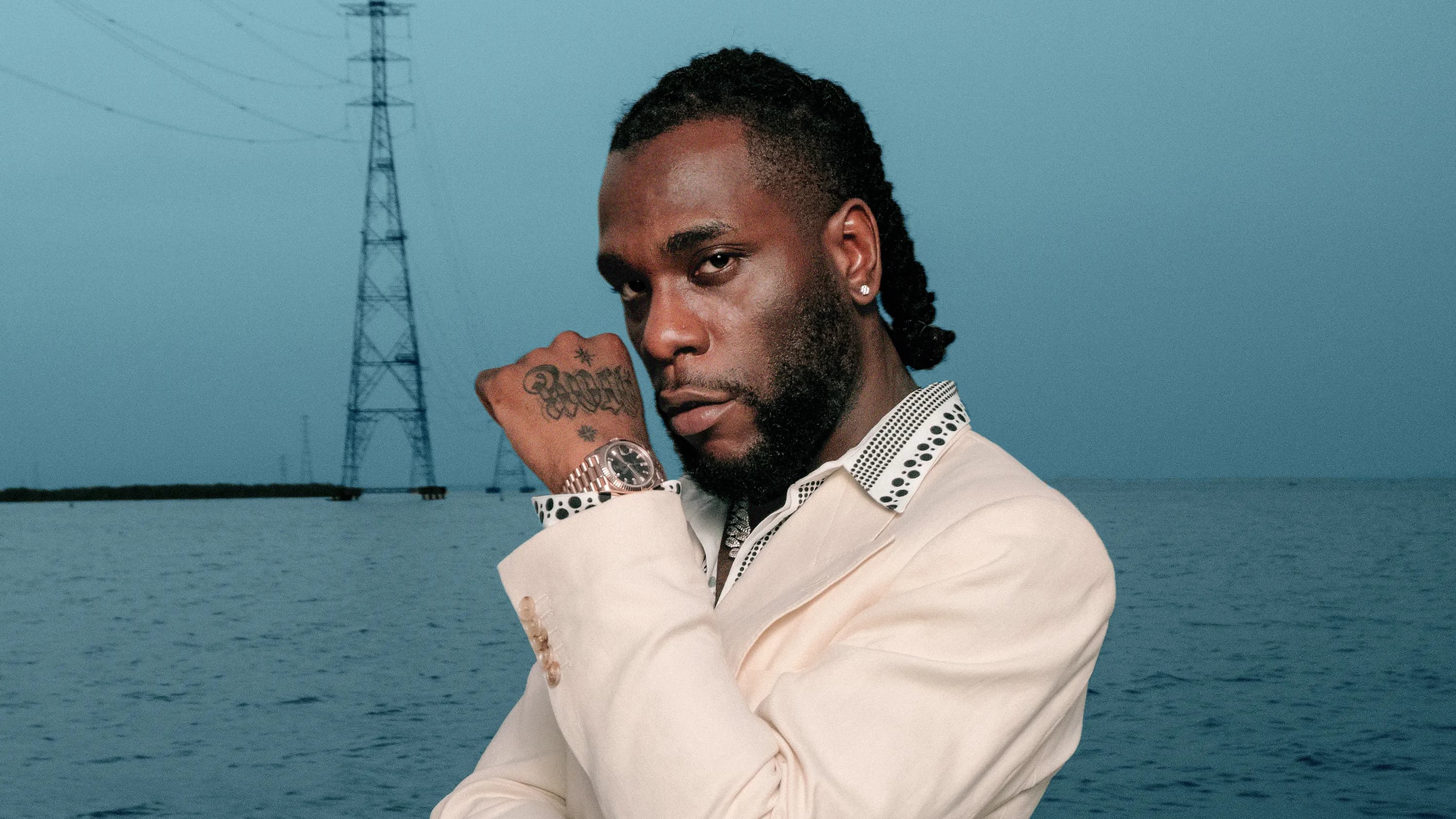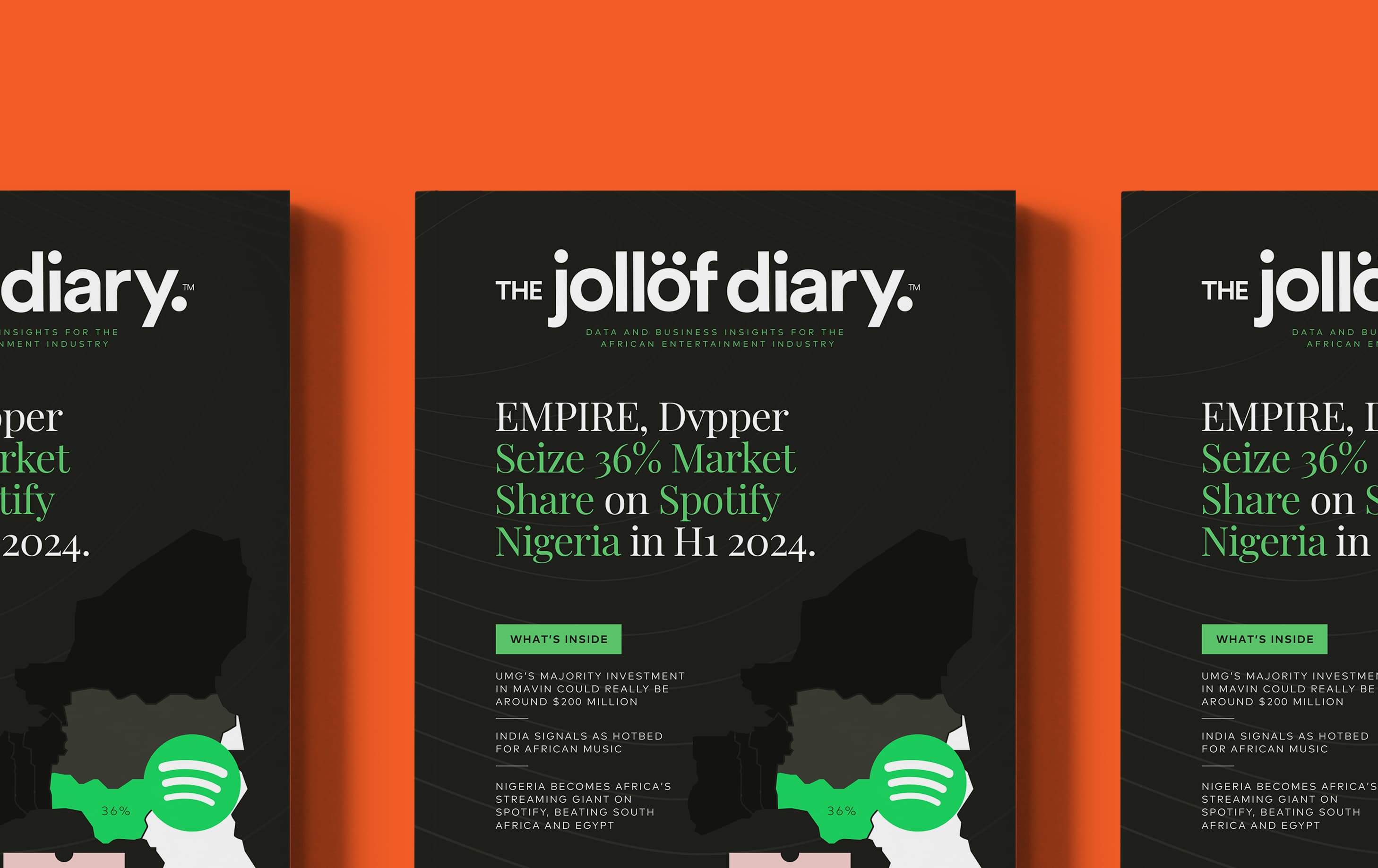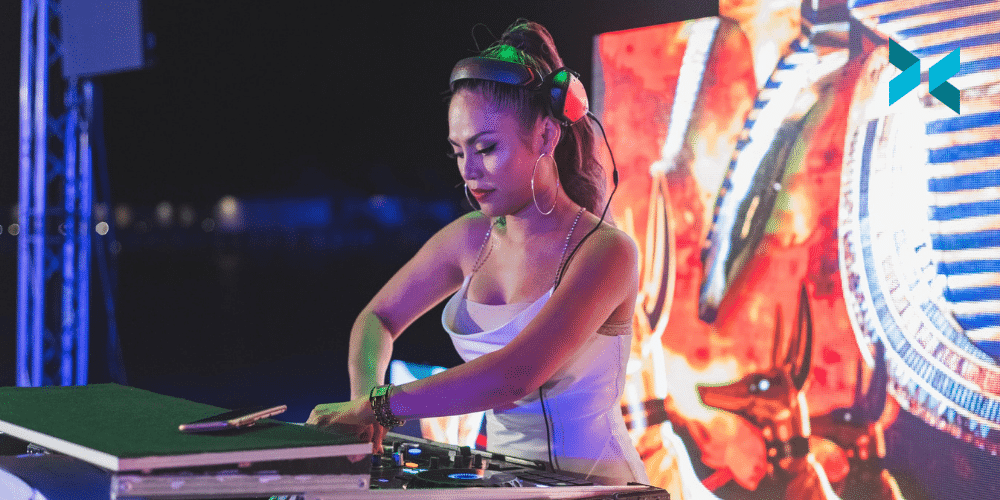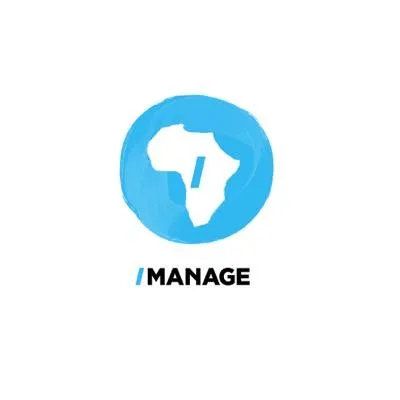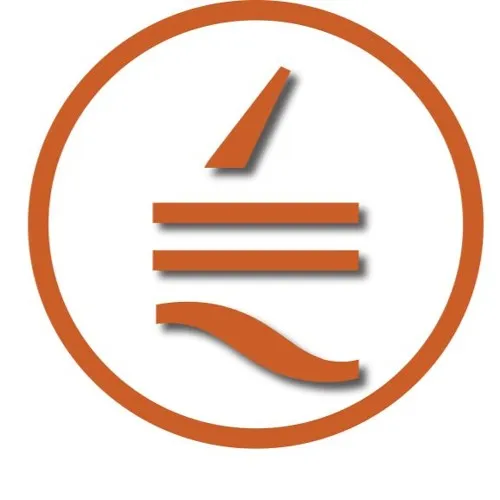Afrobeats’ Live business has Reached a Ceiling
This disparity between Afrobeats artists' profiles and their live performance experience is concerning

At Creator Economy IQ, we’re obsessed with mapping out the shifts in Africa’s digital economy, and nowhere is that transformation more explosive than in Afrobeats. This is why we’re excited to share our latest work with IQ Magazine, a Live music business intelligence publication based in London – their first-ever report on the Afrobeats phenomenon; looking at the here and now of its live business in 2024/25.
This commission marks our second collaboration with IQ. Last year, we handled the Africa section in their Global Promoters Report, expanding the coverage from three countries (Nigeria, South Africa, and Egypt) to six (adding Kenya, Rwanda, and Ghana) for the first time in the report’s history. Now, with this special ILMC edition, we’ve worked closely with IQ to bring fresh perspectives on Afrobeats’ live business in 2024/25, adding insights from Live music stakeholders that matter such as:
- Ropo Akin of Cokobar (Burna Boy)
- Josh Koram of AfroNation (Wizkid, AfroNation concerts)
- Rob Hallett of Robomagic (Fally Ipupa)
- Clementine Bunel of Wasserman (The Cavemen)
- Andy Anderson of Mavin Records (Rema, Ayra Starr)
- Sam Gill of Earth Agency (Omah Lay)
- Ishsha Bourguet of UTA (Tyla)
The full feature, originally released to IQ’s Premium subscribers ahead of ILMC, is now available to the public. But before you dive into it [right here], here are five highlights from it:
The time gap it takes for an artist to move from breakout to selling out iconic venues keeps shrinking
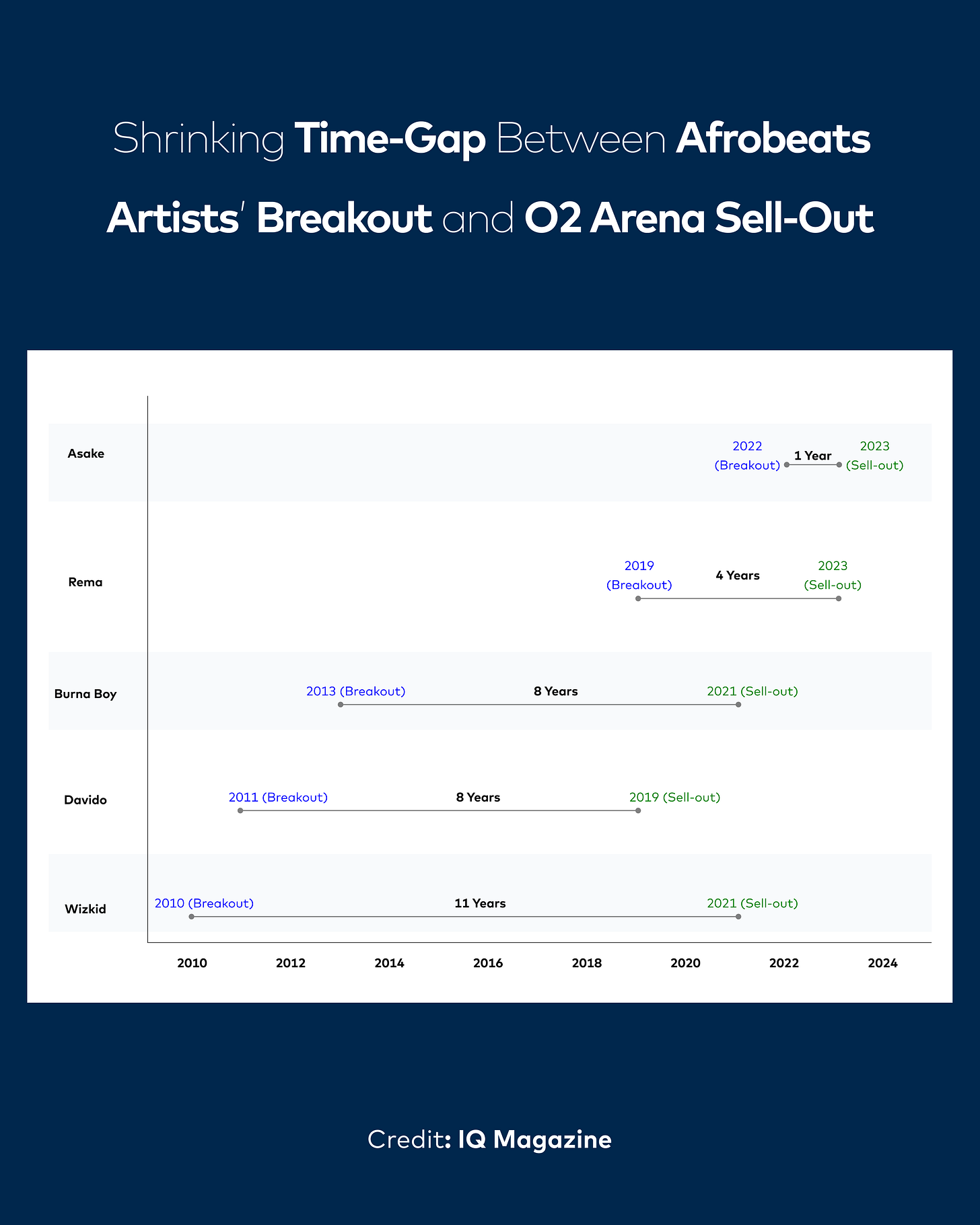
Robomagic founder Rob Hallett, who began promoting African artists in the 1990s, working with legends like Youssou N’Dour, King Sunny Adé, and Papa Wemba, recalls the stark contrast between then and now.
“It was a fight to get Africa out of the world-music pigeonhole and into mainstream pop areas,”
The reluctance of major festivals to book Afrobeats artists led to the birth of AfroNation
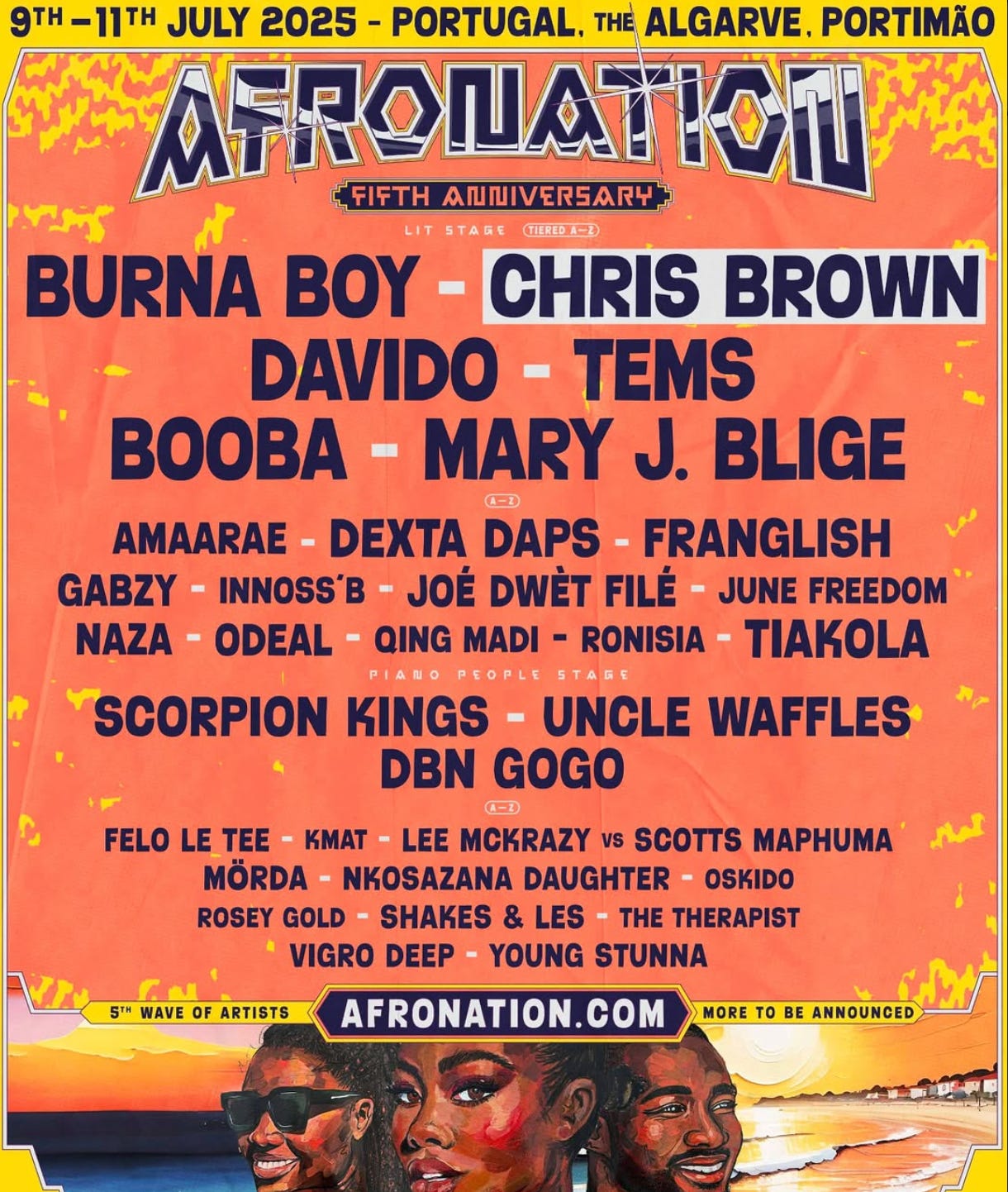
The rise of Afrobeats has also led to Afro-leaning festivals and concerts, such as AfroNation [the most prominent of all], Oh My Fest in Amsterdam, DLT Brunch in Malta, Jerk X Jollof in Detroit, and others with a heavy lineup of Afrobeats artists like Promiseland in Australia.
“Whenever we approached festivals, Afrobeats artists were often turned away,” recalls Josh Koram of Afro Nation.
Originally debuted in Portugal, AfroNation is now in its fifth year, spanning three continents, with recent editions in Detroit, Miami, Ghana, and more on the horizon.
Last month, TMG and the mayor of Portimão signed a multi-year commitment to continue hosting AfroNation festival and other live events in Portugal.
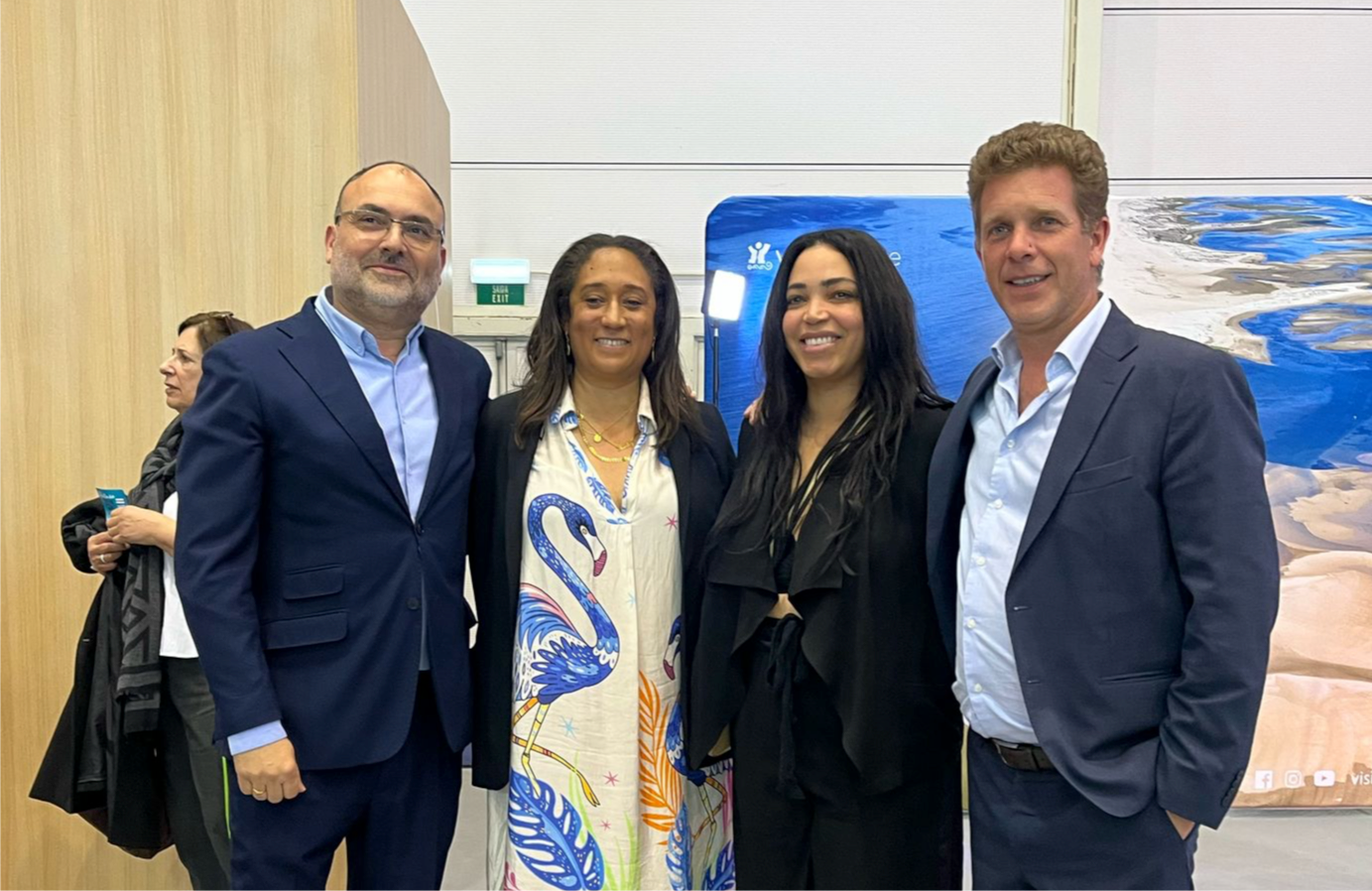
The first event under the new license this summer will be AfroNation Portugal, as the festival marks its fifth anniversary on 9-11th July. This year’s headliners include Burna Boy, Tems and Davido, alongside R&B icon Mary J. Blige, plus the leading bands in Amapiano, Uncle Waffles, Scorpion Kings and DBN Gogo, and much more.
Afrobeats’ live business has reached a ceiling
Clementine Bunel at Wasserman Music admits,
“There were so many different success stories happening at once, then artists began replicating each other’s success – choosing the same venues: Brixton, then the O2, then Wembley, etc.”
While this was a testament to the talent pool, it led to predictability, which unfortunately dulled demand.
Touring is about economies of scale
Andy Anderson of Mavin Records tips,
“Doing one-off arena shows costs too much unless you’re selling out every seat. Yet many artists are diving into venues they can’t fill.”
Beyond the toll these missteps take on profitability, they also erode momentum.
The disparity between Afrobeats artists' profiles and their live performance experience is concerning
Without [these] foundational infrastructures, many artists are thrust into high-profile tours before they’ve had the chance to develop the stagecraft to match their growing fame.
“When an Afrobeats artist first tours Europe, they might already be selling 2,000 to 3,000 tickets. But back home, they’ve never had the chance to build expertise, so you have an issue where the artist’s profile doesn’t match the experience,” Josh Koram of AfroNation explains.
The lack of a domestic touring circuit only exacerbates the issue:
“You can’t hop on a tour bus and play multiple cities across Africa or Nigeria. It’s not possible… yet.”
These are just a few of the insights shaping the conversation around Afrobeats' live music future. If you care about where the genre is headed – whether as an artist, investor, or industry insider – you need to catch the full piece on IQ Magazine.
We’re proud to keep pushing these conversations forward, and we’re always happy your thoughts.


